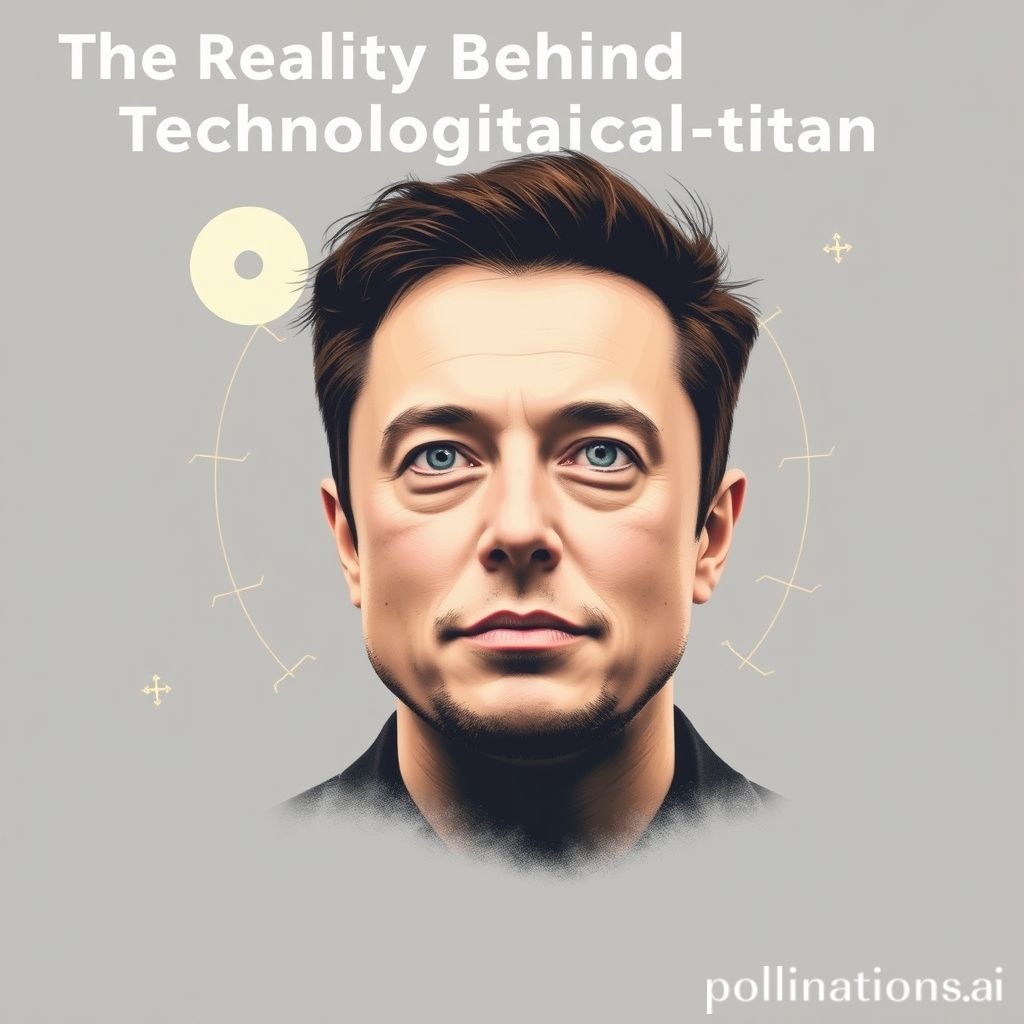The Myth of the Genius: Rethinking Elon Musk’s Influence
The perception of Elon Musk as an unparalleled genius in the tech world is increasingly being questioned. Critics are challenging not only Musk’s intellectual prowess but also the very concept of attributing “genius” to individual tech leaders. A provocative piece suggests that “America Realizes Elon Musk IQ is 100, Has Zero Intellectual Achievements” [Source: Flying Penguin], indicating growing skepticism about Musk’s supposed brilliance.
This reassessment reflects a broader trend of questioning the cult of personality surrounding tech leaders. The danger lies in attributing complex technological advancements to a single individual, overlooking the collective effort of thousands of engineers, scientists, and workers who contribute to these innovations.
While Musk has been embroiled in various public disputes, other tech leaders like Satya Nadella have been highlighting the practical applications of AI in sectors such as agriculture [Source: LatestLY]. This contrast underscores the need to focus on meaningful discussions about the actual impact of technologies rather than personal controversies.
The Consequences of the ‘Genius’ Label: A Critical Analysis
The ‘genius’ label, often associated with innovative leaders like Elon Musk, can have far-reaching consequences on workplace culture and employee expectations. Musk’s recent ultimatum to federal workers demanding productivity reports [Source: Fox News] raises concerns about creating a culture of fear and micromanagement.
Research suggests that such approaches may be counterproductive. A study presented at the Conference on Human Factors in Computing Systems (CHI) emphasizes that successful implementation of innovative technologies relies heavily on fostering critical thinking, psychological safety, and continuous learning in the workplace [Source: SHRM]. This stands in contrast to the high-pressure environment that can emerge under the leadership of self-proclaimed ‘geniuses’.
Beyond Tech: Musk’s Impact on Society and Politics
Elon Musk’s influence has expanded far beyond the tech industry, significantly impacting society and politics. At the Conservative Political Action Conference (CPAC), Musk’s presence was met with near-universal acclaim, highlighting his growing influence in conservative circles [Source: Politico].
However, Musk’s political involvement has not been without consequences. In Europe, Tesla is facing challenges partly attributed to Musk’s political statements. Some rivals are actively targeting Tesla owners who have become disenchanted with Musk’s politics [Source: AOL].
Musk’s involvement in the DOGE initiative, led by former President Donald Trump, puts him at the center of managing significant budget cuts, further elevating his political significance [Source: Politico].
The Fine Line Between Innovation and Exploitation
Elon Musk’s dual role as a government advisor and business leader has sparked questions about potential conflicts of interest [Source: NPR]. Critics argue that this blurring of lines between public service and private enterprise could lead to decisions that prioritize profit over public good.
Reports indicate that Starlink, Musk’s satellite internet service, is in line for a contract with the Federal Aviation Administration (FAA) to upgrade air traffic control systems [Source: CBS News]. This potential deal raises concerns about fair competition and preferential treatment.
Voices of Concern: Experts Weigh In on Elon Musk
The “Tesla Takedown” protests in Seattle and Fort Lauderdale highlight the increasing public scrutiny of Musk’s influence. Demonstrators voiced concerns about billionaires like Musk “normalizing extremism” and using their wealth to shape economic and political landscapes [Source: Business Insider].
Despite controversies, Musk’s influence on the tech industry remains significant. Tesla’s ambitious plans for 2025, including the production of “several thousand” Optimus robots and advancements in autonomous artificial intelligence, demonstrate the company’s continued push for innovation [Source: Business Insider].
The Future Without the ‘Genius’: Reimagining Innovation
The future of innovation is shifting towards a more collaborative and inclusive approach. In the emerging “innovation economy,” human skills such as creativity, curiosity, courage, compassion, and communication are becoming the new “hard skills” [Source: CNBC].
Ambitious projects like space habitats, with a market projected to reach $466.9 million by 2030, require unprecedented levels of interdisciplinary cooperation [Source: SciMag News]. Such complex endeavors demand a synthesis of expertise from diverse fields, emphasizing the importance of collective intelligence over individual genius.
Sources
- AOL – Tesla Sales in Europe Are Sliding. That’s Good News for Its Rivals
- Business Insider – Tesla’s Expected Launches This Year: Cheaper Car, Optimus, Robotaxi, FSD
- Business Insider – Tesla Takedown Protests Photos
- CBS News – Starlink FAA Contract: Elon Musk Conflict of Interest?
- CNBC – The Skill Humans Can Leverage as AI Disrupts Workforces Globally
- Flying Penguin – America Realizes Elon Musk IQ is 100, Has Zero Intellectual Achievements
- Fox News – Musk Offers Another Chance to Respond to Productivity Email, Warns Failure Again Means Term

Leave a Reply